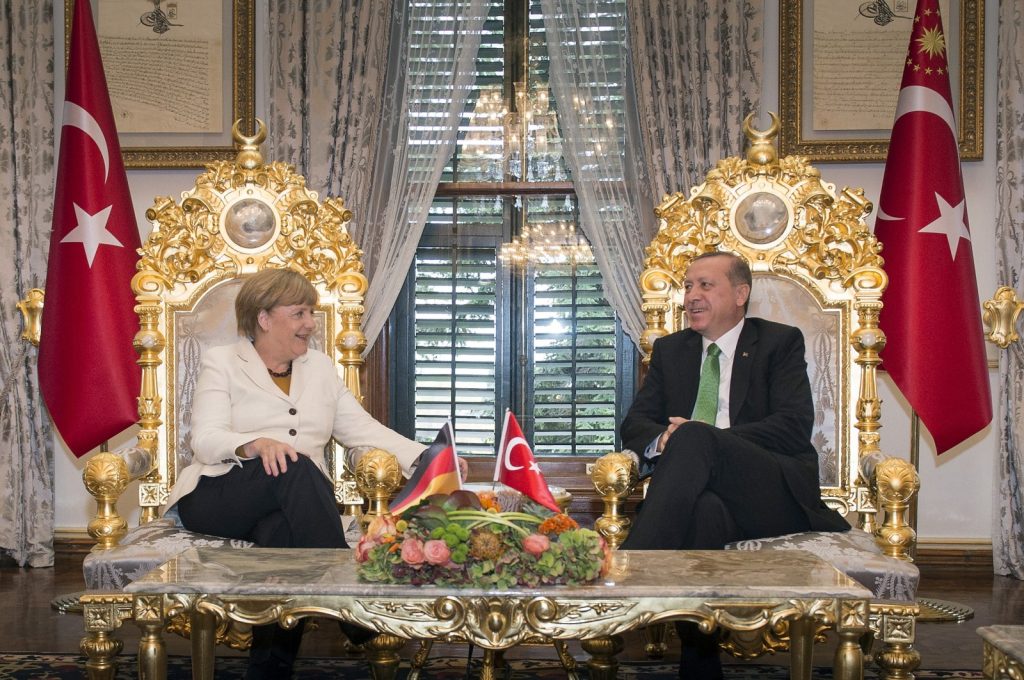Former German Chancellor Angela Merkel says she had to cooperate with Türkiye to strike a refugee deal in 2016 to stop the migration flow into Europe in spite of criticism from the German and greater European public.
Merkel details her interactions with world leaders like President Recep Tayyip Erdoğan, Russian President Vladimir Putin and Donald Trump during her 16 years in power in her new memoir, “Freedom,” which comes as her legacy is under fire in light of today’s crises.
Merkel argues it would have been an illusion to avoid negotiating with Erdoğan’s government to manage migrant movements via the Aegean since Türkiye forms a main transit route to Europe, as well as the Syrian crisis that largely spurred the refugee crisis at the time.
In October 2015, before a deal was reached, the former chancellor held a meeting with Erdoğan at the Yıldız Palace, a resplendent Ottoman-era royal residence, to much scathing criticism from the German public for its optics, especially due to the gilded seats.
“My trip to Istanbul was harshly criticized, not least because of two chairs – or golden thrones, to be precise,” Merkel wrote.
“Erdoğan sat on one, while I sat on the other. We didn’t sit on them just for the photocall but for the entire duration of our conversation. All I thought was: Wow, look at these!”
“It was later suggested that I would throw myself onto the ground before him just to secure an agreement with Türkiye so as to keep further refugees away,” she added.
Merkel says such criticism was “unfair and, in part, untrue,” pointing out pressure from both the right and the left in Germany for her to “do everything in her power” to permanently reduce the number of people gravitating toward the European Union via Türkiye.
“That was ridiculous,” Merkel wrote. “One look at the map and the realities in the Aegean was enough to see that it would only be possible to organize and manage developments in collaboration with Türkiye and that that needed to be done as a matter of urgency.”
“That was why I negotiated with the Turkish president and in doing so experienced Erdoğan as a politician who could act in the full political range, not just in terms of refugee policy,” Merkel says.
She recalls when the two leaders agreed on things, Erdoğan was “very amiable and called me his ‘dear friend.’”
Türkiye and the EU reached an agreement in March 2016 to reduce the worst migration crisis that Europe had seen since World War II: every migrant illegally arriving on the Greek islands would be sent back to Türkiye on the basis of a Greece-Türkiye readmission agreement. In return, for every Syrian being returned to Türkiye from the Greek islands, another Syrian would be resettled from Türkiye directly to the European Union.
Türkiye, however, suspended the readmission deal in 2018, citing tensions with Greece over the Aegean Sea.


